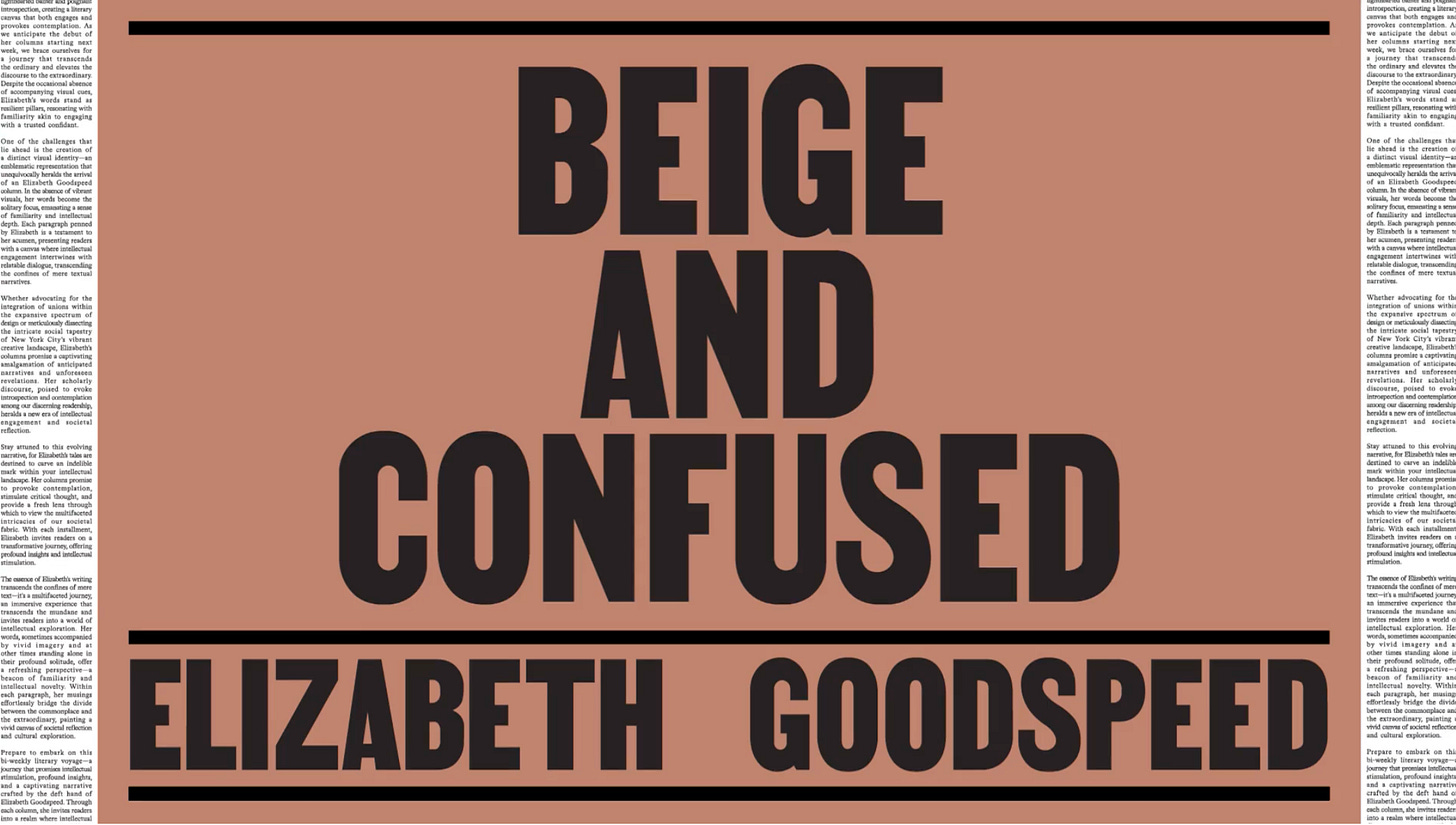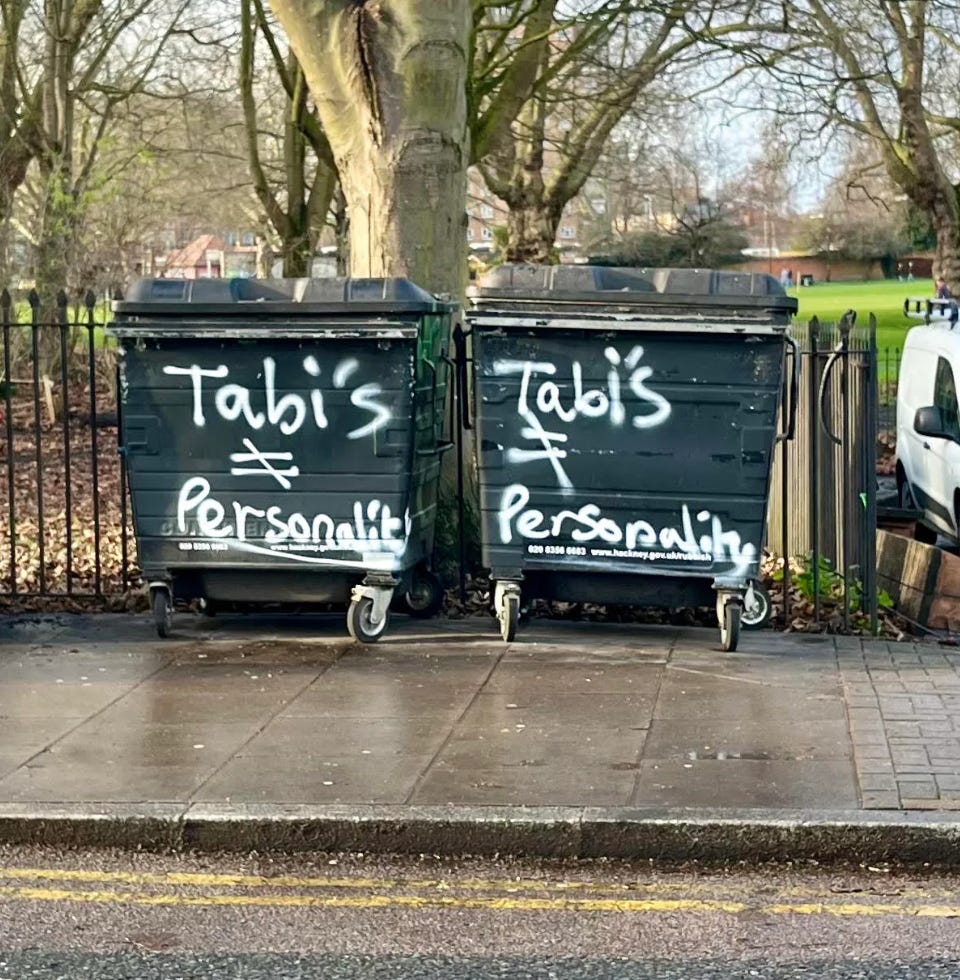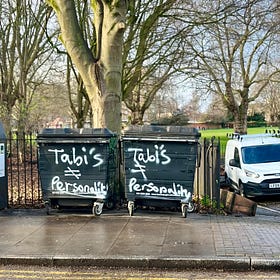Meh-ification, the plot thickens?
My most popular opinion, one year on
One particular piece I wrote exactly 365 days ago has had a big effect on my life/career in the past year, and I would love your help to take it deeper.
Bc this stuff has morphed into something even more intense over the past 12m.
One year on, the algorithm’s grip tightens and we find ourselves in…
The Meh-ocene?
Half-way through this meh-cade, it’s time to call it what it is.
Exactly 365 days ago I wrote about how I thought life under the algorithm is weirding the way we build our wardrobes, identities, taste, interests and opinions…and making us less interesting people:
Is the algorithm making us LESS stylish, LESS interesting, LESS...ourselves?
TLDR: the algorithmic internet is weirding the way we build our wardrobes…and how we build our identities, taste, interests and opinions.
What I didn't realise was how much worse it would get over the months to come.
Like I said last year, we should by all measures be living through a wild explosion of the new and remarkable.
But that’s not what we’re getting. We’re getting cultural flattening and sameness everywhere (see Matt Klein on this, and Kyle Chayka, and others too).
I called it imagination stagnation.
But what’s happening on our watch since then is so much more than just a drift to the average.
Don’t get me wrong - that’s bad enough, but what I’m talking about is about is worse.
The real problem is that despite everything we now have access to - the tools, the tech, the time, the AI, the networks, the sharing platforms - it’s becoming systematically harder, not easier, to put anything new, original, interesting, provocative, strange, challenging out into the world than it was even a year ago.
The algorithms aren’t just narrowing and homogenising our preferences.
They’re making surfacing new/interesting/remarkable things so damn HARD that everyone’s just recycling old ones.
Anyone working in brand-building, or writing/creating online, or in film, or music, probably knows this in their bones.
The technology is not a new tool. It’s a new barrier.
A. Have idea/create thing, now B. figure out how to game/beat/bend to the algorithm.
And ofc it’s not just *algorithms* (…waves arms about).
It’s the entire machinery of late-stage capitalism that now rewards conformity over creativity.
The meh-chinery, if you will (can’t stop won’t stop)…although I did read an economist this week, who I cannot now find, saying they think we ain’t even close to actual late-stage yet.
Some new evidence, officer?
Just in: Meta's Q3 2024 earnings report admitted that Instagram's content recommendation system now (officially, admittedly) prioritises what they call "high-engagement format alignment." Translation: posts that closely mimic already existing high-performing content.
Billboard's 2024 year-end analysis: 82% hit songs now use one of just four melodic structures that have previously proven most successful by the algorithm. Spotify's year-end data: the average similarity score between Top 100 tracks reached an all-time high.
BoF x McKinsey's State of Fashion 2024 report: 71% (sure…cash-strapped, low-growth) fashion industry executive leaders now rely ‘heavily’ on AI to predict and inform design decisions - not to innovate, but to replicate what worked before. The logic being that this lowers risk. But does it??
When Deloitte surveyed Gen Z consumers in November, 72% said they prefer products that ‘feel familiar’ to those that ‘stand out’.
And of course even the colour of 2025 is meh. How could it not be, when the word of 2024 was brainrot?

Even the biggest, most valuable brands of our generation aren’t immune to the brute force of this stuff. I was chatting with Ana Andjelic this morning (actually about the pros and cons of PhDs) and she said something very smart on this subject: Nike’s troubles really started when its innovation started slowing. And Apple hasn’t had an actual bona fide breakthrough for ages.
The Meh-ocene, then? The 2020s meh-cade?
…where actual cultural production is replaced with cultural reproduction.
…where what looks like innovation is actually really iteration.
…where innovation eventually becomes algorithmically impossible?
Send a smoke signal
Is it getting harder to find (or surface your own) unexpected/weird/remarkable shit?
Are you having to dig deeper to get yours?
Thank youuu.
Beth
Update…saw this from Emily Sundberg just after pressing publish.
The comments are it.
Annie Kreighbaum birthday cakes as content for non-food brands is a requirement, no?; Nicole Halverson Rhode skims frankie’s djerf pipeline; Kristen Vinakmens This feels so “meh” compared to the Lana del Rey V-day campaign; Lindy Segal Skims downfall incoming






- Yes I think it is definitely getting harder. I kinda feel like it's almost similar to the way we think about how algorithms can enable exponential/compound follower growth via network effects. In the same way, but reversed, those network effects bury us deeper and deeper into this hole of sameness/mehness
- Have you read Kyle Chayka's stuff? When I read his Airspace piece in 2016 it really crystalized this concept for me. It's interesting to see how it's just snowballed since then. I haven't read his recent book Filterworld yet, but heard great things, and would def be a must-read for this topic.
https://www.theverge.com/2016/8/3/12325104/airbnb-aesthetic-global-minimalism-startup-gentrification
http://npr.org/2024/01/16/1225002436/book-review-kyle-chayka-filterworld
Kyle also writes a great substack - One Thing https://onethingnewsletter.substack.com/
- Re: iteration vs innovation. I wrote my MA dissertation on cultural appropriation in contemporary fashion design. One of my key arguments was about how modern design processes relied heavily on moodboards - basically, images without context. This was further exacerbated with the rise of Tumblr and Instagram (I published in 2015). Previous to that, you may have still used reference images, but you had to pull them out of a magazine or book, which meant there was some sort of editorial writing aka context for the image. If it was a book from the library, you maybe could just make a b/w photocopy, or draw a quick reference sketch, or jot down some notes - you weren't looking directly at that image and reproducing it (which is part of what enables appropriation). The way technology has divorced image from context is definitely also part of what encourages iteration more than innovation, at least in design/visual fields.
- The point about Meta's admission of prioritizing "high engagement format-alignment" hit a chord for me. I was (unintentionally forced to) consult on social strategy for a DTC brand recently. They wanted to explore brand marketing and doing more brand-building things on social, but then they freaked out when their social engagement took a hit. The only thing that gets them the engagement levels they want is super basic product styling posts similar to what they started out doing 10 years ago. They get super worked up and refuse to do anything that doesn't perform on social, which leaves it at a dead end.
to surface your own shit that isn't in the algorithm's clutches, the older among us have to do some digging and rely on our memories of the old internet - I use the Wayback Machine a LOT to revisit blogs and websites from the 00s. That or rely on physical archives and places that preserve them/aren't dependent on a like or follower count.
I can't believe there was a time when my teenage self (20+years ago) though algorithms were great because "it shows you what you would like!", so naive.